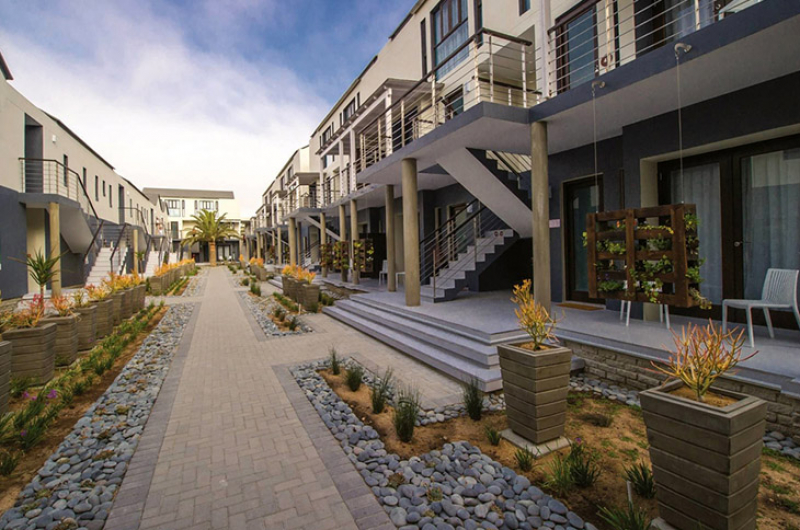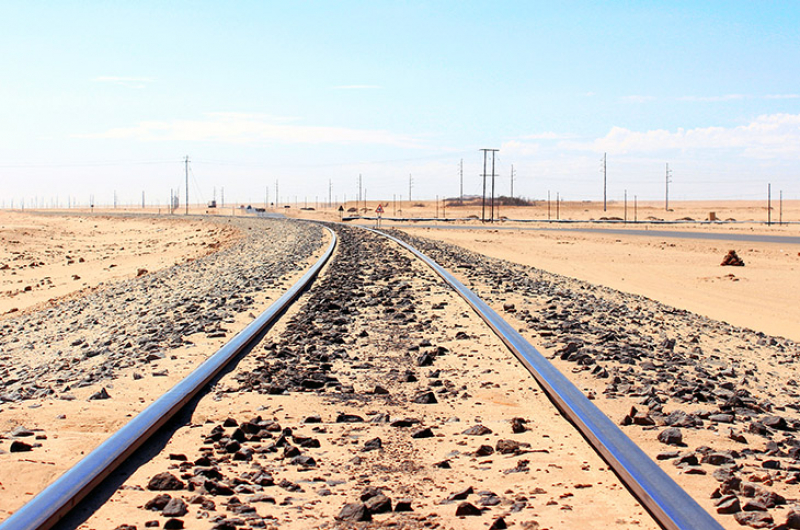 Call 061 290 8000
Call 061 290 8000 Click to mail us
Click to mail us FAQs
FAQs

DBN
A Development Bank of Namibia (DBN) Covid-19 Business Relief Loan has helped to preserve approximately 950 jobs by providing finance of N$53 million to pay salaries of employees of the well-known tourism and hospitality operation, The Gondwana Collection.
The 950 employees are distributed among 28 accommodation establishments and companies that make up the group.
Although a recovery of the Namibian tourism and hospitality sector was expected in 2021, this did not materialise due to the continued impact of Covid globally and especially the emergence of the Omicron Covid-19 variant, and the subsequent red listing of Namibia and other countries in Southern Africa. The sector now hopes that, on the back of very positive current and especially future bookings the sector will begin to recover in 2022.
At the height of the Delta phase of Covid-19 infections, Gondwana committed to, as far as responsibly possible, preserving its workforce and their income. Among measures the group undertook, management has taken substantial salary cuts, and other employees have also accepted salary cuts. Other measures to reduce costs included tightening of work schedules, overtime restrictions, leave schedules and operating with skeleton staff where possible.
Talking about the loan, Development Bank Executive for Marketing and Corporate Communication, Jerome Mutumba, expressed admiration for the manner in which the group and its staff operated as a collective. Cuts to income have preserved employment and income thus far, but none of this would have been possible without individual commitment to the shared interests of the group, he said.
Talking about prospects for the tourism industry, Mutumba said DBN is doing everything in its power to preserve the industry for the future. This includes a moratorium on repayments for existing Bank customers in the tourism and hospitality sector, restructuring of loans and extending the Covid-19 Business Relief Loans to new customers.
The investments that the Bank is making in the sector, through its loans, recognize the historic contribution of tourism to the Namibian economy but, more importantly, the need to preserve capacity for the future, Mutumba pointed out.
Mutumba said that DBN is an agency that assesses its loans in light of longer-term results, and that it considers the sustainability of its investments. Be it a smaller enterprise or a large enterprise, projects financed by DBN are expected to be sustainable well beyond the term of the finance.
However, he also said that the Namibian economy must be rebalanced to shed reliance on a few highly productive sectors. In this regard he said that although tourism and hospitality must be preserved, manufacturing and transport and logistics must be further developed. Not only will this make Namibia more economically self-sufficient, but it will also improve the attractiveness of Brand Namibia for foreign direct investment in future.
The Development Bank’s Covid-19 Business Relief Loan is supported by capitalization from KFW, Development Bank of Germany. Mutumba concluded by thanking KFW for their contribution to preserving the Namibian economy.
Development Bank of Namibia (DBN) has provided finance for MedRundu Health Centre, a new health facility, operated by a young professional, Dr Vincent Kambinda. MedRundu used the finance for equipment, supplies and working capital.
Speaking about the importance of the facility, DBN Head of Marketing and Corporate Communication, Jerome Mutumba, said although Rundu and its surrounding areas form the second largest Namibian population centre, with a populace estimated to be in excess of 90,000, health services consist of approximately of only sixteen general practitioners, one state hospital and one private hospital.
The relatively few service providers and doctors, places residents of Rundu at a disadvantage in terms of the World Health Organisation recommended norm of one doctor per 1,000 head of population. Says Mutumba, the addition of just one doctor, under the circumstances, significantly alleviates pressure on the pool of medical skills available in the region.
He goes on to say that the shortage of local skills can lead to circumstances in which patients forgo medical treatment, which has wider costs in terms of lost productivity or social burdens on families who have to provide care for ailing family members. The alternative, he adds is that patients have to travel further afield at their own expense, which may also place pressure on public sector medical facilities.
The Bank has a long history of finance for medical facilities and professionals, which includes finance for Ongwediva Medipark, two providers of radiological and diagnostic services, one of which was assisted under the Bank’s Innovation Fund, as well as several pharmacies.
Talking about finance for young professionals, Mutumba says the facility is proving fit for purpose. The role of young professionals, he continues, is to provide business and social services that foster sound socio-economic and enterprise environment.
In addition to this, young professionals are nurtured financially by the Bank with the expectation that they will form part of the future pool of entrepreneurs to come. He points out that their earnings are also the basis for future investments in the economy.
On the topic of financing amounts, Mutumba notes that early career-stage professionals and artisans generally require lower amounts to establish their enterprises. This has the effect that the amount of debt finance used becomes more affordable, and in turn, the enterprises become more sustainable.
The win, he concludes, is mutual. On the one side, the Bank empowers youths venturing into entrepreneurship. On the other side, the Bank and the nation receive exceptional development impact for every dollar invested.
Development Bank of Namibia (DBN) and Development Bank of Southern Africa (DBSA) have confirmed a loan of about N$2.6 billion finance for TransNamib.
The loan will be used for remanufacturing of rolling stock, acquisition of new rolling stock, modernisation of the TransNamib Workshop, upgrading of signalling equipment, including spares and associated equipment.
DBN and DBSA have a long-standing relationship that is governed by a Memorandum of Understanding. The Memorandum enables both Banks to jointly participate in the financing of infrastructure projects in Namibia.
During the 2019 Investment Summit, in Windhoek, DBN and DBSA jointly pledged N$8 billion towards infrastructure development in Namibia. Among this was the pledge of about N$2.6 billion towards TransNamib.
According to Martin Inkumbi, the CEO of DBN, the success of Harambee Two places emphasis on the positioning of rail as a catalyst for growth of economic activity.
The DBSA Head of SADC Coverage, Davies Pwele, further emphasised, in line with DBSA’s mandate of regional integration, that the repositioning of TransNamib as a logistics hub comes at a critical time when the SADC rail network needs to gear itself to respond to the Africa Continental Free Trade Agreement (ACFTA) which is now in effect.
The partnership between DBN, DBSA and TransNamib is a testimony of what can be achieved in the delivery of critical infrastructure, starting from financing of feasibility studies to investment, Pwele concludes.





